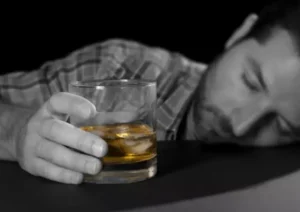
In addition, ensure to write these goals, https://ecosoberhouse.com/ which need to be definite and measurable to motivate you to quit an addictive habit and boost your confidence. Examples of activities that can help you keep yourself preoccupied include reading a book, watching the TV, taking a walk, or talking to a friend. Such activities help distract your brain from thinking of the addictive behavior or possible triggers, preventing a relapse. It may feel daunting at first, but it’s OK—and even advantageous—to approach addiction recovery from a place of not knowing. Just because rehab doesn’t work the first, second, third, or even fourth time doesn’t mean rehab doesn’t work.
Overcoming the cycle of addiction

A practical step towards breaking the addiction cycle is replacing activities that trigger cravings with behaviors you enjoy. A person in the final stage of breaking the addiction cycle is fully committed to preventing relapse; they keep up with counseling appointments, lifestyle changes, and support meetings. The urge to relapse is not as strong in this stage, and the individual grows confident in their ability to beat the addiction. A person in the preparation stage is mentally ready for change and may be taking steps toward getting help. They may join a gym, speak with a therapist, obtain the required resources, and abstain from the addiction for a few days. However, difficult emotions or triggers can push people from the preparation stage back to the contemplation stage.

You Don’t Have to Stop the Cycle of Addiction Alone
You can also keep a few strategies in hand to mitigate a relapse before it happens. The preparation stage marks a turning point where individuals are ready to take action towards addiction drug addiction treatment recovery. They may start to make plans, such as researching treatment options, attending group therapy, or seeking help from a treatment center.
- Contact our team to find out how we can help you or a loved one break the cycle of addiction and achieve successful recovery.
- Whether it’s trauma, mental health issues, or something else, our licensed therapists are equipped to help you explore these root causes and build healthier coping mechanisms.
- The person struggling with addiction will then crave the substance that provides instant relief from the negative feelings.
- Ask your healthcare professional what option is ideal for the stage of addiction you’re currently in.
How To Break The Cycle
Medication-assisted treatment (MAT) is often used in combination with counseling and therapy. You may also choose to find a mentor or experienced coach who can support and guide you through the difficult moments and show their belief in you and your recovery. They can also help to hold you accountable for staying free of your addictive substances. Drugs or alcohol is an easy way to get rapid relief from complex issues and emotions, but it does not deal with the root issue. It may be the easy way out in the moment, but in the long run it only creates a much bigger issue that is difficult to escape from, which is addiction.
Detox, residential, or outpatient programs may be part of a person’s treatment plan, depending on the severity of the addiction. Addiction thrives on denial, rationalization, and avoidance, which makes it difficult for many people to confront the reality of their situation. Recognizing one’s use has become a problem and acknowledging how addiction is affecting one’s life is the first step toward healing. Long-term recovery requires patience and commitment and must be individualized to meet the specific needs of each person and address the underlying causes of addiction. If you believe that you fall within one of these stages of addiction, remember that help is available. At this stage, the person is usually not aware of the risk of dependence.
The individual identifies their triggers and makes plans to avoid them. The action stage also leads to improved self-awareness and self-care. An addict in this stage needs counseling and support to help them move to the next.

- Luckily, there’s a better way of coping with your daily struggles through meditation, an ancient practice that helps your mind feel calm and relaxed even during traumatic times.
- When both partners stop blaming each other and start owning their 100%, they can break free from the cycle and create a more balanced relationship.
- It changes harmful behaviors, resolves underlying issues, and teaches ways to cope.
- These behaviors will serve as a substitute for your previous go-to solution to avoid uncomfortable emotions, promote an overall healthy sense of well-being, and help to reinforce sobriety.
- Higher relapse rates are seen in those skipping further treatment after detox11.
- But relapse does not equal failure; with the right addiction treatment programs, individuals can break this cycle of addiction.
By addressing each cycle component one step at a how to break the addiction cycle time, your loved one can find the way out and succeed in recovery. As tolerance builds up, individuals may increase their drug use to get the initial effect. This can lead to physical and psychological dependence without them realizing it. Not all drug dependence is addiction.3 For example, a person with chronic asthma may be dependent on a daily medication in order for that person to be able to breathe properly.
As the substance continues to offer relief, excitement, or escape, people often move to the next stage—experimentation. At this point, you may be testing your limits, wondering if you can still control how much and when you use it. It’s common for people in this stage to believe they can stop whenever they choose. To achieve long-term sobriety, you have to process and heal underlying traumas that may be triggering the addiction. In our experience, finding success in rehab isn’t all that different from troubleshooting Wi-Fi when the internet goes down.
Finding Healthy Coping Strategies
In this stage, individuals begin to let go of the need to control their addiction and accept that they cannot overcome it alone. This can be a pivotal moment that opens the door to seeking assistance. The brain is connected by millions of nerve cells (neurons) that control feelings, movement, and bodily sensations. Nerve cell action is regulated by neurotransmitters, chemical messengers that carry and balance signals throughout the brain. Dopamine is a neurotransmitter that regulates the brain’s reward and impulse control system. Education on addiction and the risks of substance use can encourage people to not take substances in the first place.
Substance use can exacerbate existing mental health conditions or trigger new ones. It’s a complex, chronic brain disorder characterized by compulsive drug seeking and use, despite harmful consequences. The Three Stages of Addiction form a cyclical pattern that can be incredibly difficult to break free from.
